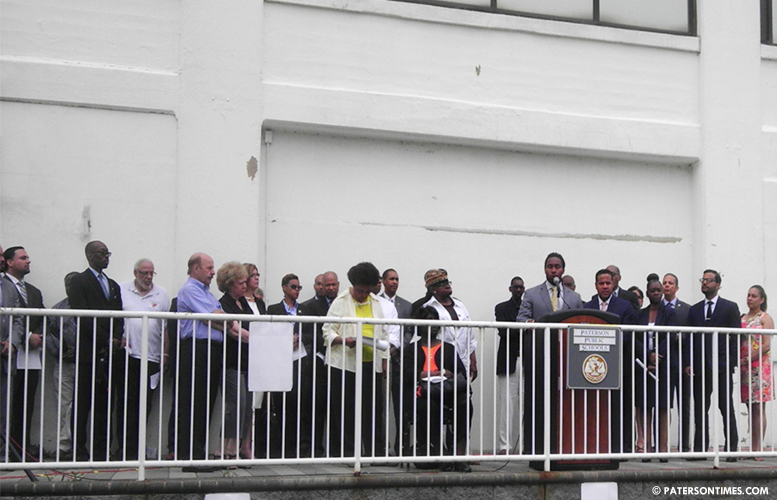The city’s advisory school board accepted control over several key areas that fall under the operations category early last week. Board members approved a transition plan taking over control of operations.
“This board, effective tonight, will have full oversight over the operations of the transportation department in our district,” said Christopher Irving, school board president.
Irving, along with vice-president Chrystal Cleaves, and state-appointed school superintendent Donnie Evans, negotiated a six page implementation plan regaining local control over operations with acting state department of education commissioner David Hespe.
The plan calls for the board to re-assert its authority over school safety and security, transportation, trainings for employees, guidance and student support services, and student health.
As a result, board members will now be able to serve as an additional option in the appeal process of harassment, intimidation, and bullying (HIB) incidents. Irving explained that presently a parent is able to appeal to the school’s principal, assistant superintendent, and then the superintendent of the district, but now an additional option has been added. “The parent will now have the ability to appeal to the board,” said Irving.
Jonathan Hodges, school board member, asked how the additional option will be communicated to parents. Evans said the district will use the current channels of communications, be it posting notice on its website or sending papers by inserting them into backpack of students, to inform parents of the new option.
Hodges also pointed to an item on the plan that calls for the creation of a policy committee. The district already has such a committee. “What troubles me is they don’t seem to be aware that we have this already,” said Hodges.
“I made it very clear to them that we already have a policy committee,” said Irving. “This is standard language they use with all the state controlled districts.”
Board members raised the most concerns over an impasse procedure listed in the plan which allows the superintendent to veto items that fall under operations despite the board having regained control over that function.
“What is supposed to happen is you’re supposed to be given full responsibility, this does not do that. There isn’t supposed to be a veto. Once you given that issue back, you give that issue back,” remarked Hodges.
The procedures allow the board to appeal to the commissioner if the superintendent vetoes a resolution.
Irving explained the commissioner of education has the authority to veto any action so long as the district is under state-takeover. “The commissioner has the authority to veto any board, any district, if he feels so,” said Irving.
In June, when the school official celebrated the return of control over operations to the elected board, Evans stated he would not veto anything unless it was an illegal action being taken by the board.
On Wednesday evening, Evans re-assured the board: “I am as committed as the board is in not only executing this particular transition plan with fidelity and have it mean something, not just a piece of paper, but to acquire control in other areas as well,” said Evans.
Errol Kerr, who said the commissioner can exercise a “pocket veto” without providing any written reason for his actions, is “just plain disrespectful.”
“I personally find this distasteful,” said Kerr.
The veto issue was not one where the commissioner gave ground during the negotiation, added Irving. “I pushed extremely hard to make sure that this has as much teeth that we possibly can have,” said Irving.
Items dealing with operations will now be highlighted on the agenda, said Irving. If there are disputes between the board’s president and the superintendent over the items which ought to fall under operations, the executive county superintendent of schools will serve as a mediator, according to the transition plan.
Although finding the veto process distasteful, Kerr, who along with other board members unanimously voted to approve the resolution, reasoned, “I’ve always been told half of a loaf is better than no loaf.”
